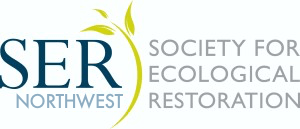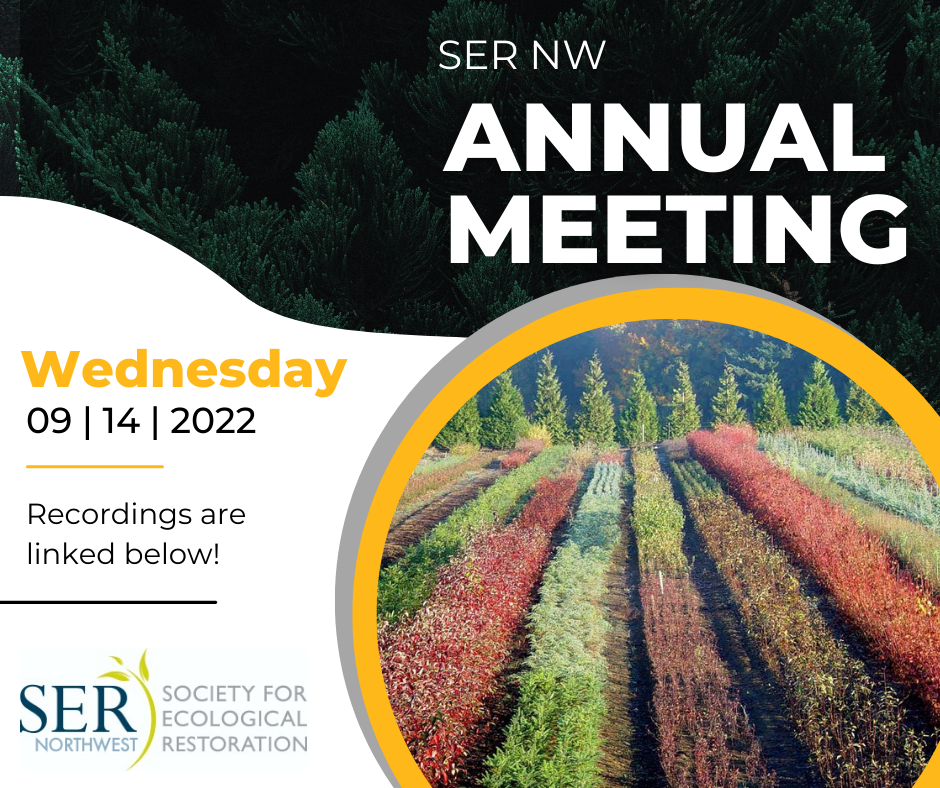
2022 Annual Member Meeting
Annual Member Meeting
Thank you for joining us!
Individual presentation recordings are linked below
September 14, 2022
Virtual Conference 9:00am-2:00pm PDT
Join us in September for SERNW’s annual member meeting, reimagined as a short virtual conference with regionally relevant presentations on the theme of Reconnecting to Restoration
| SERNW 2022 Annual Member Meeting Agenda | ||
| September 14th, 2022 – Online | ||
| All Times in PDT (Pacific Daylight Time) | ||
| Hyperlinks will redirect to the SER main website | ||
| 9:00 AM | Welcome Message | Regina Wandler |
| 9:15 AM | Restoration Retrospective | Clay Antieau |
| 9:35 AM | News and Views on the United Nations Decade on Ecosystem Restoration | Cara Nelson |
| 10:00 AM | Assisting Nativity verses Novelty: Tree Migration in the age of the Anthropocene | Jenise Bauman Chelsea Harris |
| 10:30 AM | How warm is your water? Collaborating to identify climate-adapted plant materials for habitat restoration and water quality projects | Scott Harris Randy Lawrence |
| 11:00 AM | Short Break | |
| 11:15 AM | SERNW Chapter Report | Over Lunch |
| 11:45 AM | NW Chapter Awards | Amy Sacry |
| 12:00 AM | UW Botanic Gardens Rare Plant Care and Conservation Program: Preserving Washington’s Native Flora | Maya Kahn-Abrams Allie Howell |
| 12:40 PM | For whom do we restore steep slopes, and by whom? | Michael Yadrick Brandon Drucker |
| 1:10 AM | Bison grazing as a tool for native prairie restoration in the southern Willamette Valley, Oregon | Paul Reed Lauren Hallett |
| 1:40 AM | Closing comments and Q&A | Kerrie Mcarthur |
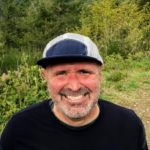 Michael Yadrick is an ecologist working at Seattle Parks and Recreation supporting Green Seattle Partnership. He endeavors to unsettle colonial conservation practices, inviting respect, humility, and harm reduction into his ecological restoration practice. Michael is the co-founder of the Arbutus ARME, creator of the treehugger podcast, and President of the Tacoma Tree Foundation Board of Directors. He is also a Returned Peace Corps Volunteer (Bolivia ’02-“04) and former AmeriCorps volunteer. Currently an injured ultrarunner, Michael enjoys family hikes and dog walks and plunging in the cold Salish Sea.
Michael Yadrick is an ecologist working at Seattle Parks and Recreation supporting Green Seattle Partnership. He endeavors to unsettle colonial conservation practices, inviting respect, humility, and harm reduction into his ecological restoration practice. Michael is the co-founder of the Arbutus ARME, creator of the treehugger podcast, and President of the Tacoma Tree Foundation Board of Directors. He is also a Returned Peace Corps Volunteer (Bolivia ’02-“04) and former AmeriCorps volunteer. Currently an injured ultrarunner, Michael enjoys family hikes and dog walks and plunging in the cold Salish Sea.
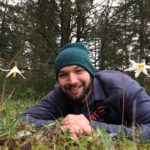
Brandon Drucker is a Grit City resident and ecologist with the City of Tacoma Passive Open Space Program. His current focus is enhancement of urban natural areas from forested steep slopes and oak woodlands to green stormwater infrastructure. Brandon seeks to meaningfully incorporate stormwater infiltration, climate change adaptation, and community engagement into his restoration practice. He is energized by seedlings, herpetofauna, paddling, climbing, and good-humored Washington Conservation Corps crew members.
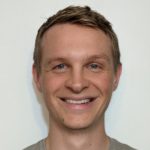 Paul Reed is a Restoration Ecologist with the Institute for Applied Ecology. He works to enhance habitat for native species by writing, managing, and implementing ecological restoration projects in the Willamette Valley and beyond. Prior to joining IAE, Paul completed his Ph.D. in Environmental Sciences, Studies, and Policy at the University of Oregon. For his dissertation, he studied the effects of climate change on native prairies from southwestern Oregon to western Washington. His research involved a climate manipulation experiment and resulted in several publications on prairie plant phenology, population demographics, and community change. Following his Ph.D., Paul received a USDA-NIFA postdoctoral fellowship to continue his work studying the effects of invasive annual grasses in native prairies and to implement a prairie restoration experiment at a local bison ranch.
Paul Reed is a Restoration Ecologist with the Institute for Applied Ecology. He works to enhance habitat for native species by writing, managing, and implementing ecological restoration projects in the Willamette Valley and beyond. Prior to joining IAE, Paul completed his Ph.D. in Environmental Sciences, Studies, and Policy at the University of Oregon. For his dissertation, he studied the effects of climate change on native prairies from southwestern Oregon to western Washington. His research involved a climate manipulation experiment and resulted in several publications on prairie plant phenology, population demographics, and community change. Following his Ph.D., Paul received a USDA-NIFA postdoctoral fellowship to continue his work studying the effects of invasive annual grasses in native prairies and to implement a prairie restoration experiment at a local bison ranch.
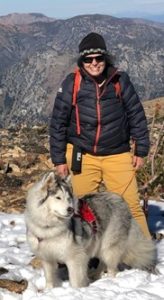 CARA R. NELSON is a Professor and Chair of the Department of Ecosystem and Conservation Sciences at University of Montana’s College of Forestry and Conservation and Director of the College’s Restoration Ecology Laboratory. The Lab generates knowledge about ecological processes associated with ecosystem degradation and repair — and innovates that knowledge into prescriptions for restorative interventions. Towards these ends, Cara and her students study the effects of large-scale disturbance on vegetation dynamics, the efficacy and ecological impacts of restoration treatments, and the science behind the selection of native plant materials. Cara leads the Ecosystem Restoration Thematic Group of IUCN’s Commission on Ecosystem Management and is a past Chair of the Society for Ecological Restoration. Last year, she led the development of principles of ecosystem restoration to guide the United Nations Decade on Ecosystem Restoration.
CARA R. NELSON is a Professor and Chair of the Department of Ecosystem and Conservation Sciences at University of Montana’s College of Forestry and Conservation and Director of the College’s Restoration Ecology Laboratory. The Lab generates knowledge about ecological processes associated with ecosystem degradation and repair — and innovates that knowledge into prescriptions for restorative interventions. Towards these ends, Cara and her students study the effects of large-scale disturbance on vegetation dynamics, the efficacy and ecological impacts of restoration treatments, and the science behind the selection of native plant materials. Cara leads the Ecosystem Restoration Thematic Group of IUCN’s Commission on Ecosystem Management and is a past Chair of the Society for Ecological Restoration. Last year, she led the development of principles of ecosystem restoration to guide the United Nations Decade on Ecosystem Restoration.
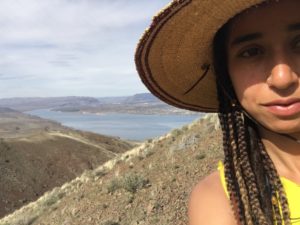 Maya Kahn-Abrams has a background in mycology, botany, natural product chemistry, biogeochemistry, history and anthropology. After completing two years at Bard College (2012-2014), she graduated in 2019 from The Evergreen State College with a dual BA/BS in environmental microbiology and ecology. Since graduating she has worked with the Rare Plant Care and Conservation program (UW Botanic Gardens) in a number of diverse ecosystems as an intern, research technician and currently as a graduate student, and for USDA-ARS working on rangeland and shrub steppe restoration.
Maya Kahn-Abrams has a background in mycology, botany, natural product chemistry, biogeochemistry, history and anthropology. After completing two years at Bard College (2012-2014), she graduated in 2019 from The Evergreen State College with a dual BA/BS in environmental microbiology and ecology. Since graduating she has worked with the Rare Plant Care and Conservation program (UW Botanic Gardens) in a number of diverse ecosystems as an intern, research technician and currently as a graduate student, and for USDA-ARS working on rangeland and shrub steppe restoration.
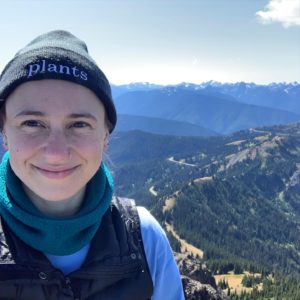 Allie Howell: After graduating from UC Berkeley in 2019 with a B.A. in Ecology and Evolution, Allie Howell worked as a research technician studying salmon habitat restoration for two Washington State agencies. She joined UW Botanic Gardens Rare Plant Care and Conservation Program (Rare Care) to assist with a study monitoring rare alpine plants, and is currently a research scientist at Rare Care working on a variety of rare plant restoration projects across Washington State.
Allie Howell: After graduating from UC Berkeley in 2019 with a B.A. in Ecology and Evolution, Allie Howell worked as a research technician studying salmon habitat restoration for two Washington State agencies. She joined UW Botanic Gardens Rare Plant Care and Conservation Program (Rare Care) to assist with a study monitoring rare alpine plants, and is currently a research scientist at Rare Care working on a variety of rare plant restoration projects across Washington State.
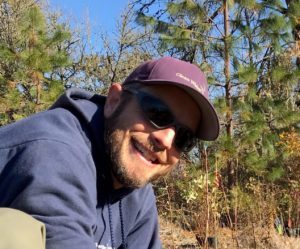 Randy Lawrence is a Water Resources Project Manager at Clean Water Services. Originally from North Carolina, where he received a BS in Biology from UNC Chapel Hill, Randy moved to the Pacific Northwest in 2004 and has since worked in natural resources. Randy has over 14 years of experience with ecological enhancement and restoration projects and 9 years of native plant nursery and tree farm management experience and his current focus is the long term stewardship and functional resilience of ecological enhancement and restoration projects in the Tualatin River Basin.
Randy Lawrence is a Water Resources Project Manager at Clean Water Services. Originally from North Carolina, where he received a BS in Biology from UNC Chapel Hill, Randy moved to the Pacific Northwest in 2004 and has since worked in natural resources. Randy has over 14 years of experience with ecological enhancement and restoration projects and 9 years of native plant nursery and tree farm management experience and his current focus is the long term stewardship and functional resilience of ecological enhancement and restoration projects in the Tualatin River Basin.
Scott Harris 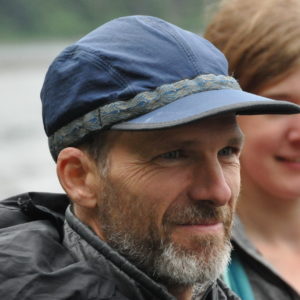 is the Director of the Conservation Research Program at IAE. Scott has over 20 years of experience with plant, wildlife, and natural resource research, restoration, and conservation; and 10 years experience as an educator. Scott has a B.Sc in Aerospace Engineering, an M.Sc. in Natural Resources Management (Univ. of Alaska Fairbanks), and a Ph.D. in Forest Ecology (Oregon State Univ.). He has extensive experience with natural resource and conservation research, particularly in temperate forests, and monitoring and assessing the impacts of management activities on the conservation of species of concern. Additionally, Scott has experience working with private landowners on conservation of threatened and endangered species. He is also courtesy faculty with the Dept. of Forest Ecosystems and Society at Oregon State University
is the Director of the Conservation Research Program at IAE. Scott has over 20 years of experience with plant, wildlife, and natural resource research, restoration, and conservation; and 10 years experience as an educator. Scott has a B.Sc in Aerospace Engineering, an M.Sc. in Natural Resources Management (Univ. of Alaska Fairbanks), and a Ph.D. in Forest Ecology (Oregon State Univ.). He has extensive experience with natural resource and conservation research, particularly in temperate forests, and monitoring and assessing the impacts of management activities on the conservation of species of concern. Additionally, Scott has experience working with private landowners on conservation of threatened and endangered species. He is also courtesy faculty with the Dept. of Forest Ecosystems and Society at Oregon State University
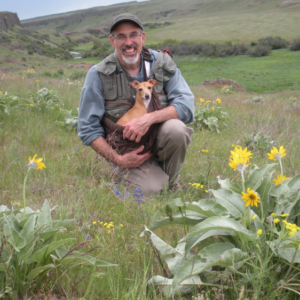 Clay Antieau M.S., Ph.C. is a Horticulturist and Botanist offering unique abilities and perspectives in restoration, environmental education, and science communication. He’s a senior environmental scientist with Seattle Public Utilities and a long-time Instructor and Advisor with the University of Washington’s Professional and Continuing Education Certificate Program in Wetland Science and Management. He’s a Fellow, Past-President, and past Chapter Chair of the Washington Native Plant Society; and Past-President of the Northwest Chapter of the Society for Ecological Restoration.
Clay Antieau M.S., Ph.C. is a Horticulturist and Botanist offering unique abilities and perspectives in restoration, environmental education, and science communication. He’s a senior environmental scientist with Seattle Public Utilities and a long-time Instructor and Advisor with the University of Washington’s Professional and Continuing Education Certificate Program in Wetland Science and Management. He’s a Fellow, Past-President, and past Chapter Chair of the Washington Native Plant Society; and Past-President of the Northwest Chapter of the Society for Ecological Restoration.
